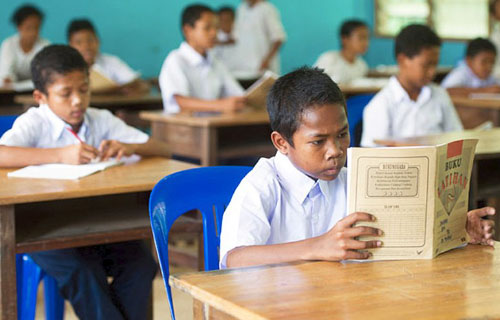Why there is inequality

KUALA LUMPUR, 25 October 2020 -The are a number of reasons that contribute to the big disparity in access to quality education for Orang Asli schoolchildren.

Even for teachers; a fresh graduate who is posted to an Orang Asli school will need to learn to adapt to the environment, living conditions and learn their culture and language simultaneously.
It is a difficult task that requires plenty of support in terms of training, peer-to-peer support and resources. We hope this study will be considered by the Government when revising and improving policies concerning Orang Asli schoolchildren.
It could contribute to better programmes for Orang Asli schoolchildren, subsequently enabling access to quality education and empowerment. Some of the key recommendations of this paper include obtaining the voices of Orang Asli in the formulation and implementation of programmes to provide an education that reflects their culture and environment.
We plan to engage with the Education Ministry and the Department of Orang Asli Development, as well as other relevant ministries. Such efforts require cross-ministerial contributions to help address the challenges these children face. There are no perfect policies but we can make it better together.
Institute for Democracy and Economic Affairs Social Policy research manager Wan Ya Shin

Access to education forOrang Asli children is a multifaceted issue. Factors like the mismatch in the formal educational system, the imbalance of power dynamics between Orang Asli communities and mainstream society need to be looked at. For any educational programme to work, we need to first realign our thinking and approach.
All this whil e, we’ve focused too much on ‘developing’ the communities and teaching Orang Asli children about the mainstream world and how to fit in. This one-sided approach takes away their pride and identity and it doesn’t help in bridging the gap between them and the non-indigenous world.
Moving forward, we need to educate our society about the Orang Asli cultures and communities.
More Orang Asli voices need to be foregrounded, and more positive things about them need to be highlighted. At the same time, we need to empower Orang Asli children by making their indigenous identities more visible and relevant in the formal educational system. We also need more Orang Asli role models for the young ones.
University of Nottingham Malaysia Assistant Professor Suria Selasih Angit is a researcher specialising in Orang Asli education and is an Orang Asli fom the Temiar tribe

It is unfair to expect schools to be frontrunners in addressing these problems alone. Comprehending how and why education can work for Orang Asli is a crucial first step for engagement and empowering the community and students.
To indigenous communities around the world, the quality of knowledge is holistic rather than compartmentalised, teaching and learning methods are interactive and demonstrative rather than instructive, and the social values that govern learning attitudes are co-operative rather than competitive.
Schools, education departments and non-governmental organisations that work with the Orang Asli community often do so in silos and at the expense of the Orang Asli themselves.
A top-down, “we know what is best for your community” attitude is prevalent in the absence of an organic and inclusive process. This not only forsakes the voice of the Orang Asli, but also jeopardises sustainability and eradicates the sense of belonging.
Future efforts must focus on bringing the community into the decision-making process as active contributors. We need to put our differences aside by working and learning together, with and for the community.
Orang Asli school SK Runchang (Pahang) teacher and Varkey Foundation Global Teacher Prize 2020 Top 50 finalist Samuel Isaiah
First published in The Star, 25 October 2020


